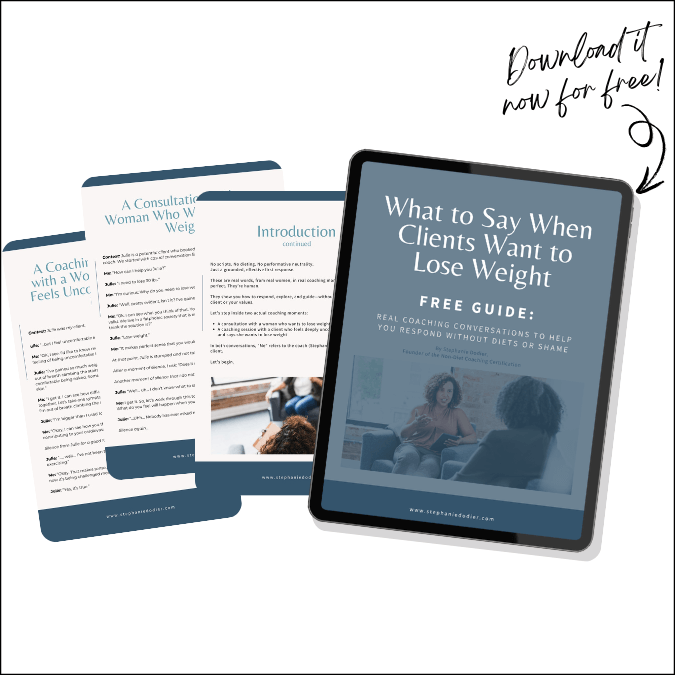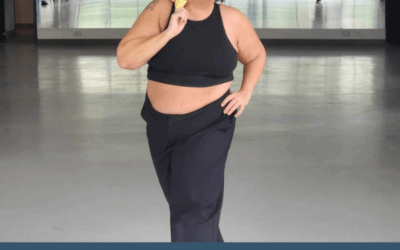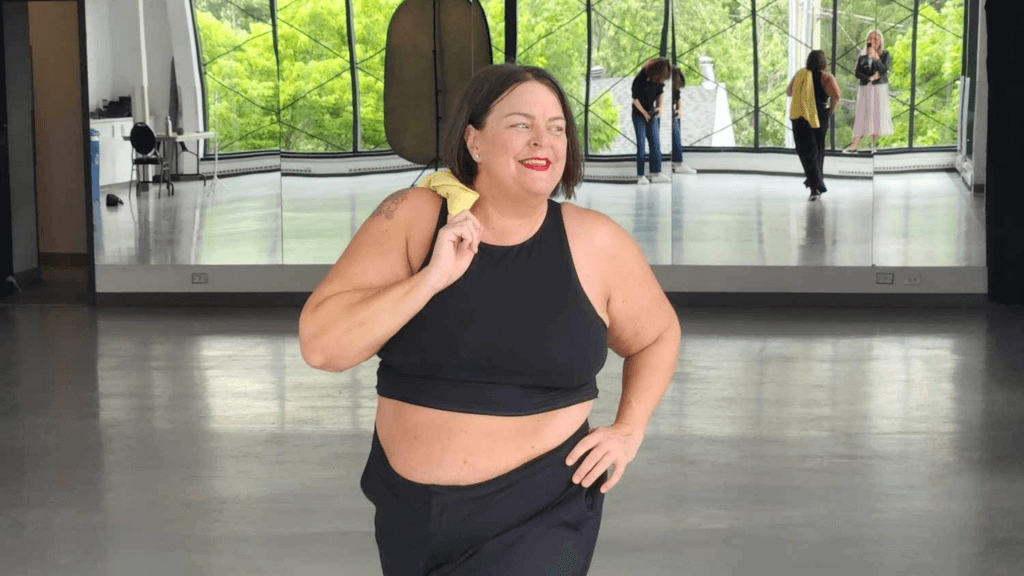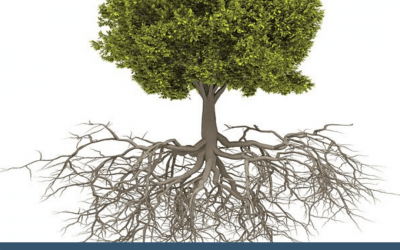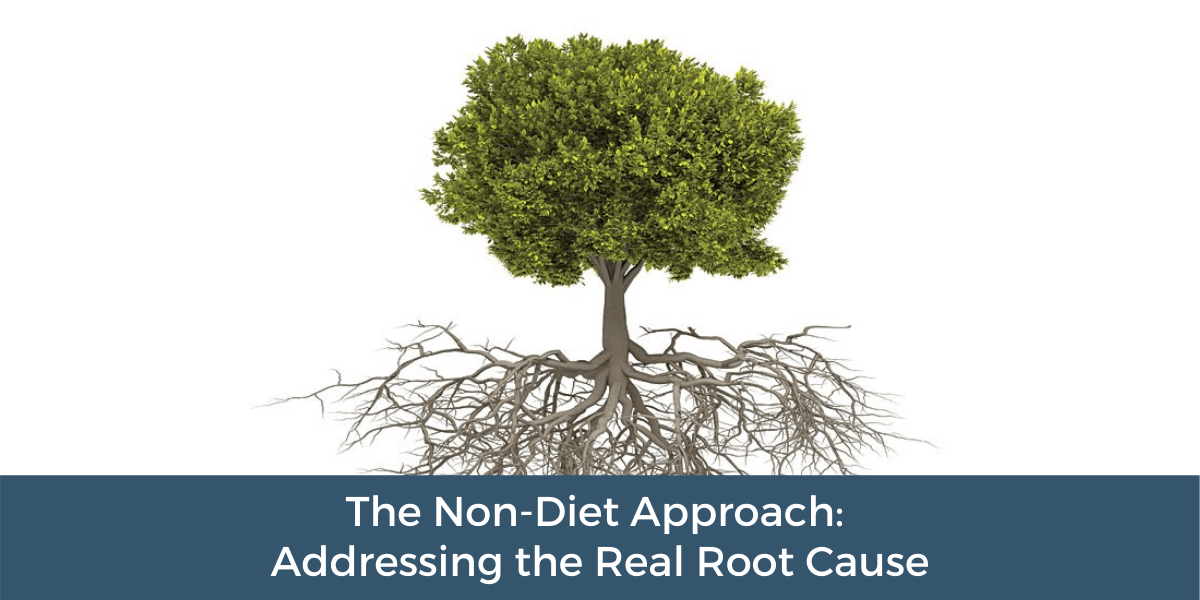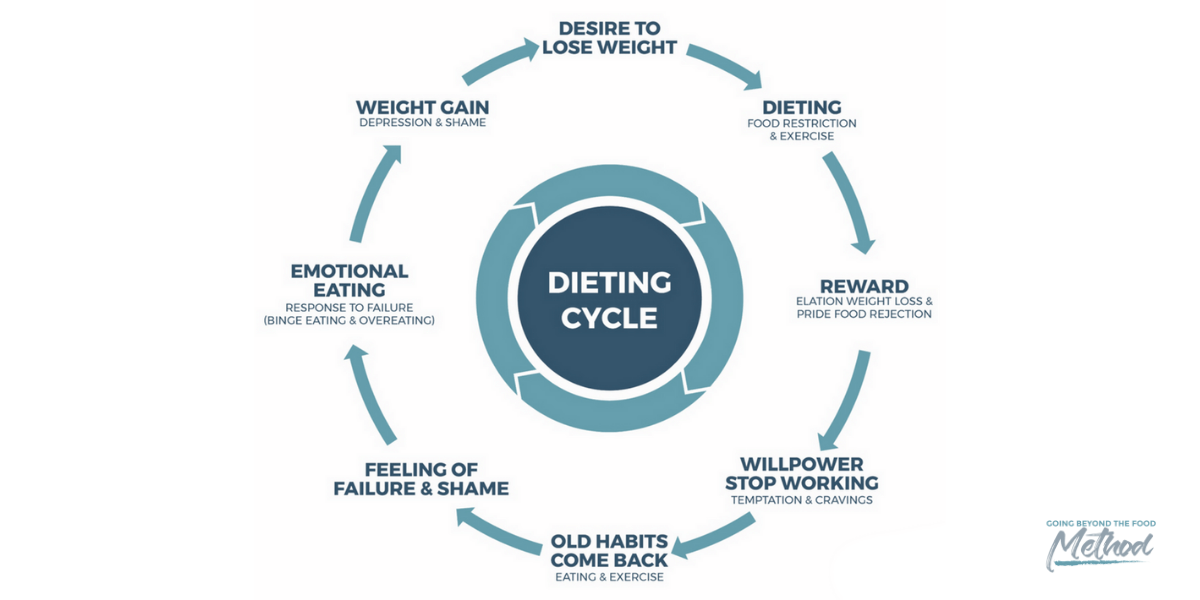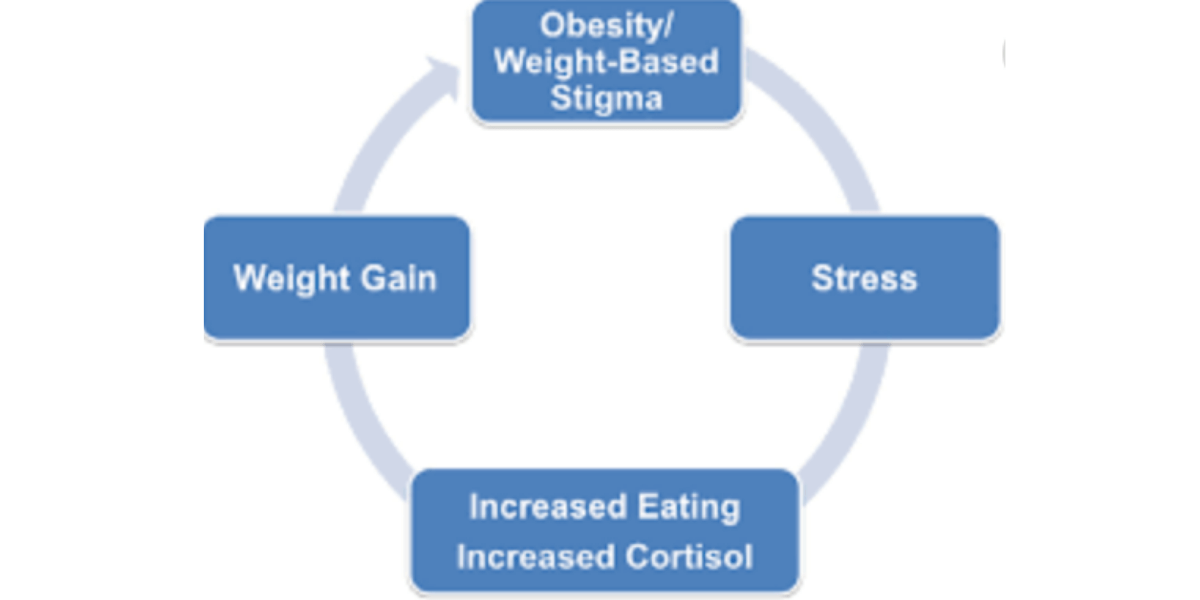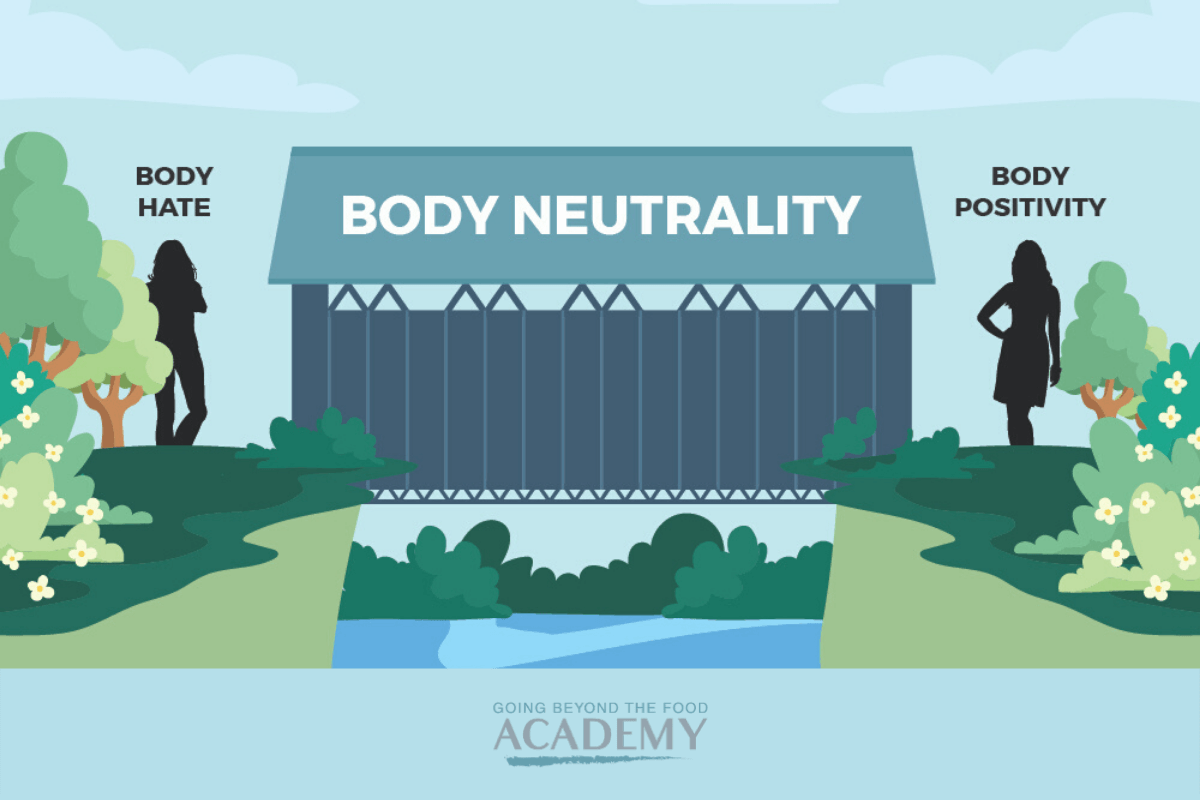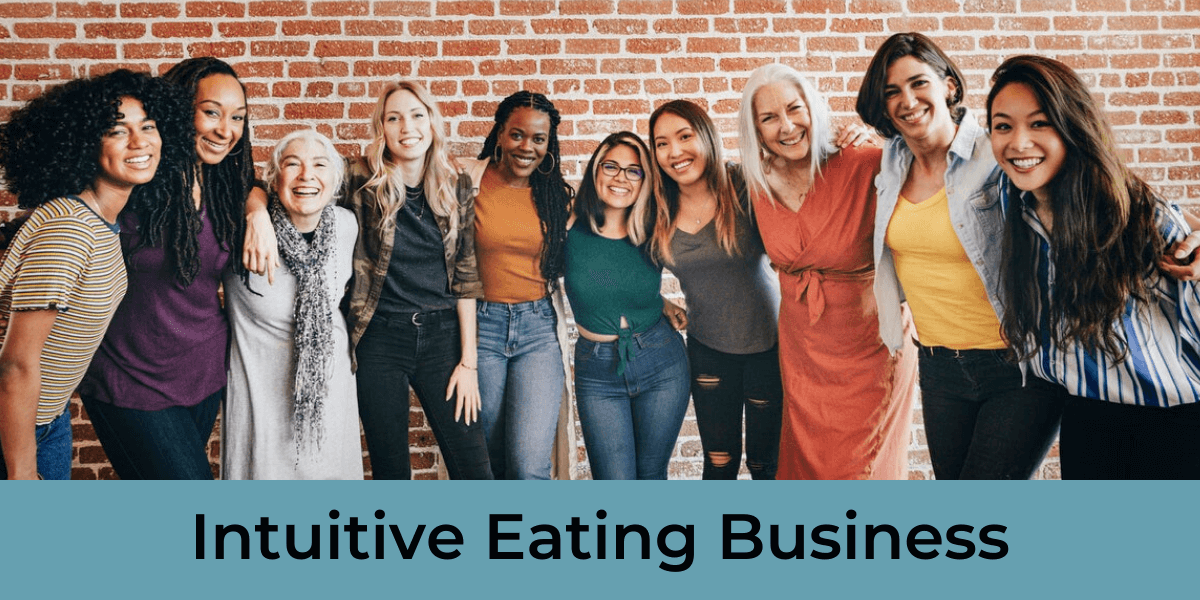What is the gift of emotional eating?
Thinking of emotional eating as a gift may seem to be a strange concept as the prevalent diet culture demonizes this same eating behavior. Diet culture teaches us not to give in to emotional cravings as it may be a sign that we lack willpower and discipline. Yet almost every human being eats emotionally.
One of the foundational aspects of the Going Beyond the Food Method is to see our relationship with food and our body as a message. Seeking to understand our eating behaviors instead of fighting them is what will allow us to see the gift of emotional eating. If we fail to see the gift behind emotional eating, we miss out on the guidance and opportunity for growth that it has to offer.
This article aims to help you understand emotional eating and how it can empower you instead of sending you down the path of shame and self-loathing.
It also answers these questions about emotional eating:
What is Emotional Eating versus Binge Eating versus Overeating?
What is the gift of eating emotionally?
Why do we want to stop eating emotionally?
How do we stop emotional eating?
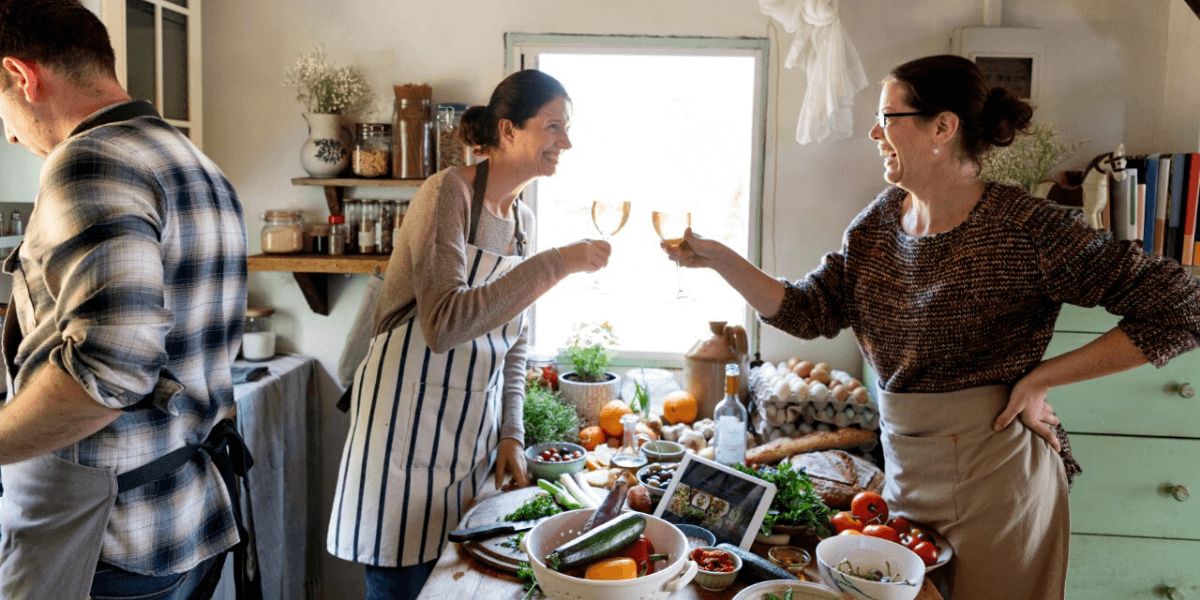

What is Emotional Eating?
Emotional eating is the act of using food to reinforce positive emotions such as joy, love, and celebration or to soothe negative feelings such as anxiety, stress, fear, anger, boredom, shame, etc.
A shorter and simpler emotional eating definition that I can give you is “eating for reasons other than satisfying one’s physical hunger.”
Most women can relate to emotional eating in some way. 99.9% percent of us are emotional eaters. Emotional eating is more common in women partly because we are more emotionally sensitive than men.
What is Emotional Eating versus Binge Eating versus Overeating?
People often describe emotional eating as mindless eating. It’s consuming food when you’re not hungry or when you’re trying to satisfy an emotional need.
On the other hand, binge eating involves eating a large amount of food within a short period of time. This eating behavior is usually accompanied by the feeling of a lack of control over the eating episode as well as intense shame about the behavior.
Binge and emotional eating aren’t necessarily two separate and distinct processes. Instead, they are one process that occurs in a continuum. What may start as casual emotional eating may lead to eating past the point of comfort (simply overeating).
How do you know when you’re moving further into the continuum of emotional eating? By paying attention to the “3-how’s”:
- How much are you eating?
- How often do you use eating as a coping strategy?
- How else are you coping with difficult emotions?
Overeating is interesting. The word clearly means “eating over a certain amount.” What is that certain amount? Who determines it?
The concept is 100% created by the diet culture. It’s a term used to shame someone who’s not following a prescribed meal plan, diet, etc.
When you ditch the diet culture and practice intuitive eating, you’ll find that there’s no such thing as overeating. That’s because you let your internal hunger and fullness cues guide you when it comes to how much you should eat instead of following a dictated amount from an external guide.


Why do we want to stop eating emotionally?
Diet culture is the primary driving force that promotes the concept that emotional eating should be first controlled and then avoided. It puts a negative spin on emotional eating as it leads people to eat more than the ideal amount it prescribes. And when you eat more than the prescribed amount, it tries to shame you and labels your behavior as “overeating.” Diet culture then provides tips and tricks to stop emotional eating as a way to ensure that you “stick to your diet”.
The second reason why people so badly want to stop emotional eating is that they don’t understand it.
Diet culture leads you to be afraid of gaining weight or not losing weight. It’s when you begin to understand that there is a gift behind emotional eating that you can finally get out of that state of fear and start engaging with your desire to eat emotionally with curiosity instead of judgment.
What is the gift of emotional eating?
Now, I’m going to get a little bit science-y here. Let’s break down emotional eating.
Let’s start by understanding what is an emotion. Emotions are created by your thoughts and communicated to the rest of your body via a burst of electric energy in your nervous system. Think of this burst of energy as a signal for the rest of your body to act or behave in a certain way. These bursts of energy are simply signals or messages that are felt in your body as sensations. You feel these sensations (aka emotions) deep down in your body both consciously and unconsciously.
Sometimes, these sensations can be uncomfortable. Emotions such as anxiety or stress are often deeply uncomfortable and food can be an antidote for this emotional discomfort. To help this emotional discomfort, food will release dopamine in our brain to offset the discomfort of stress or anxiety, making you forget for a while that you are anxious or stressed.
And so, over time, you may start building a pattern of reaching for food when you feel uncomfortable emotions. Think of this behavior as protective; you are simply trying to feel better. Humans are wired to seek comfort and pleasure and to avoid pain and discomfort.
But once you understand how your emotions relate to your eating behavior, you’ll begin to see emotional eating as a radar for your life and as a way of getting to know yourself better. Emotional eating allows you to ask powerful questions that can put you back in control and help you change your life.
The gift of emotional eating is that it’s a window into your truth and growth.


How do we stop?
Do you really want to learn how to stop emotional eating? Or do you want to understand your emotional eating behavior?
The first place to start is to shift from judging your eating behaviors to being curious about them. See emotional eating for what it is – a gift.
Ask yourself questions like:
“I wonder why I eat every night after 8 o’clock?”
“I wonder why I crave chocolate every morning around 11 am? What is that all about?”
“Why is that when I have a fight with my partner all I want is chips?”
“Why am I so afraid of gaining weight? What am I really afraid of?”
When you ask yourself questions like these, only then will you be able to start the process of understanding what is hidden behind your emotional cravings.
As the term itself suggests, emotional eating is eating in response to emotions. An emotion is a mood, a state of mind derived from our thoughts and our perspective in life. All of your emotions are the outcome of the way you think.
If you want to stop emotional eating, the best way to do that is by changing the way you think. Emotions are produced by our thoughts, therefore if we change our thoughts, we change our emotions.
To better understand how events, thoughts, and emotions influence your actions, you can listen to my self-coaching podcast episode or read my self-coaching article where I discuss how the brain works.
Seeking to understand your emotional eating behavior will help you understand yourself better. By understanding yourself and your life better, you will start making different choices and interrupting patterns that create emotional discomfort.
That’s when you stop needing to eat emotionally.


My biggest shift
For me, shifting my perspective of emotional eating has been a turning point in my life. It’s been a gift. It sent me down the path of healing. I use my relationship with food, weight, and my body as a way of seeing what’s going on in my life.
Shifting from judging my eating behavior and my body weight to being curious has been a journey. That journey wasn’t easy. I made some mistakes along the way and it led me to understand myself and why I had been struggling with food and my body since the age of 12. After dieting for 25 years, I finally understand the real reason why diets never worked for me.
It was never about the food or my body…
Need help with emotional eating?
Perhaps you came across this article because you’re looking for ways on how to overcome emotional eating. It’s mostly about understanding the gift behind it, and harnessing this gift to develop a healthier relationship with food.
We are ready to help find YOUR gift of emotional eating!
You can access all of our services on our work with us page. We have a number of programs and service levels enabling us to serve most women:
Free Resources and Masterclasses: Get started and get to know us better!
Private coaching with Stephanie and her team Stephanie and her team of Certified Non-Diet Coaches are waiting to support you in a one-to-one setting with an individualized plan.
Undiet Your Life group coaching program is for women to learn how to eat intuitively, become body neutral, and learn self-coaching at their own pace while being supported in a group setting by Stephanie and her team of Certified Non-Diet Coaches.


